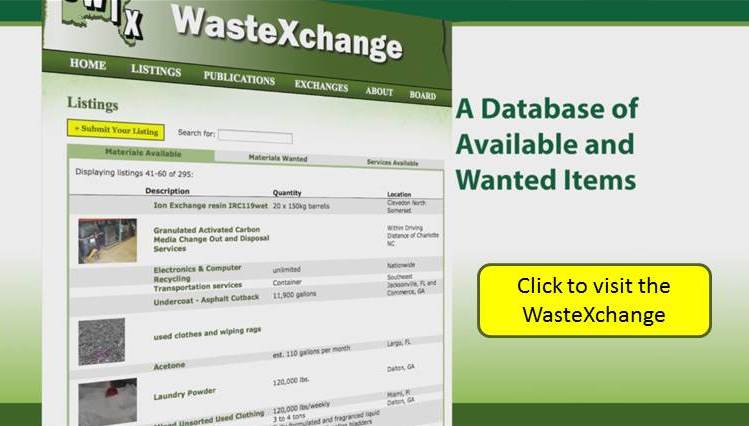The Glass Recycling Industry: Growing Commercial Activity

Commercial Viability of the Glass Recycling Industry
Author: Erich Lawson Article Source: Northern California Compactors, Inc.
Thanks to the increasing awareness of both the environmental and financial benefits of glass recycling, it isn’t just limited to individuals and households anymore. Bars, restaurants, night clubs and even entire industries have started recycling glass products. Recycling has grown beyond just a way to save the environment, it’s now an industry in its own, with some organizations that are focused solely on monetizing this new goldmine.
Today’s Glass is 100% is recyclable thing and are getting recycled without loss in quality. And now it’s Glass Recycling Industry with some organizations that are focused solely on recycling glass
Take the Dahl Recycling Company in Colorado Springs – They have contracted with over 60 restaurants and bars to collect used glass products. These are then sold the Coors Brewing Company, where it is recycled into new beer bottles. There are significant advantages and then some for everyone involved in this type of recycling, like:
- The organization or individual disposes of used glass products in an eco-friendly way
- Recycling glass is cheaper and more efficient for manufacturing new products
- Manufacturers and waste glass suppliers can attract more customers with the ‘Green’ tag
The financial savings for every organization that is involved in recycling results in cheaper manufacturing. So, apart from saving the environment, it can also result in financial savings for you.
Glass Recycling Method
Perhaps the biggest advantage of recycling is that all these savings can be realized with such a small investment that it is practically negligible. Typically, the only glass recycling machine needed is a crusher to pulverize the glass products that are being recycled. The procedure is also relatively simple and quite similar to the normal manufacturing process for glass:
- To crush the glass, recycling plants can use a glass recycling machine
- The crushed glass is added along with materials like soda ash, sand, and limestone
- Additional ingredients are added for coloring and tempering glass
- This mixture is collectively used as raw material for manufacturing glass
Why Recycle Glass?
There are a number of reasons that make glass recycling essential. Most importantly, we’re creating more garbage today than natural processes can decompose. For every ton of garbage added to a landfill, there are 1.2 tons that are being preserved. Though glass isn’t really harmful to nature, it isn’t bio-degradable, so by recycling it, we can re-use tons of glass that would otherwise end up clogging landfills.
A huge driving force behind the increase in glass recycling lies in the financial benefits. In some states, consumers actually get paid to recycle glass. Rather than the cost of the bottle being included in the product’s price, they might be asked to pay a deposit instead. When they return these bottles to your recycling plant or collection center, they’ll get their money refunded (the cost of the bottle), you receive money when you recycle and sell them, and the manufacturer can save money on raw materials too.
——-
NEED ASSISTANCE WITH GLASS RECYCLING?
WE SPECIALIZE IN MATERIALS EXCHANGE
OUR OFFICE SERVES TO CONNECT MATERIALS PRODUCERS AND USERS
CONTACT 800-441-7949
——-
How Does Glass Recycling Help?
To truly understand just how much glass recycling benefits everyone, including the environment, it’s important to understand the process used to make glass and how recycling fits into it:
- The raw materials are extracted from the ground, and this takes a lot of energy which comes from fossil fuels
- To manufacture glass, the raw materials are melted in a furnace, which also burns fossil fuels
- Apart from directly burning fuel, manufacturing plants also consume a huge amount of electricity (over 8611,000,000 kilowatts/year), part of which might be sourced from coal
Recycling reduces the cost and environmental effects of each step in the manufacturing process, since:
- Waste glass replaces the raw materials, reducing emissions and the associated expenses
- Glass melts at a much lower temperature than the raw materials, so less fuel is needed
- The lower temperatures drastically cut down on electricity consumption
Every reduction in cost during the manufacturing process results in savings for the end consumer and manufacturer alike. That’s just the start, since a recycling center can collect, recycle and sell glass to manufacturing industries. Apart from just the monetary benefits, even the environment is stripped of fewer resources.
Glass recycling methods are very simple to implement, but if your business does not have the equipment necessary for this process, you can always start small. Work as a collection point, where people can drop off glass waste from their homes and offices, to be sent further to a glass recycling facility. Considering how much glass waste is produced every day, if we all do our part, we can make a massive difference!
Posted in: Company News
Leave a Comment (0) ↓
